Tech & Terrorism: Tech’s Self-Regulation Fails to Set Standards for Removing Extremist Content
Industry Must Fulfil Promises to Adopt Effective Standards and Policies or Face Regulation
The recent New Zealand attacks have once again made it clear that the tech industry’s preferred paradigm of self-regulation has failed. Tech companies have been unable or unwilling to establish clear standards of what constitutes impermissible extremist and terrorist material, or deploy adequate tools to quickly and completely remove such content.
“There is no reason why the tech industry via the Global Internet Forum to Counter Terrorism (GIFCT), or other body, cannot quickly promulgate a baseline standard of ‘worst of the worst’ extremist content with proven links to violence, which tech should immediately eradicate from their platforms. By ‘worst of the worst’ we mean content that when left online, will radicalize and inspire others to violence,” said Counter Extremism Project (CEP) Executive Director David Ibsen. “For example, an industry-wide restriction on content promoting or produced by groups on U.S., EU, and U.N. sanctions lists as well as individuals and specific pieces of content with proven links to violence, would be respectful of the rule of law and make common sense. There is simply no reason why such content should be available online. If the industry, and its self-appointed representative bodies like GIFCT, cannot adapt such simple and obvious standards for what constitutes harmful and therefore prohibited content, then governments must step in to protect users and the citizenry at large.”
In 2017, led by Facebook, Google and Twitter, the tech industry created the Global Internet Forum to Counter Terrorism (GIFCT). GIFCT was established in part to coordinate the industry response to the misuse of Internet platforms and services by extremist and terrorist actors. Facebook’s spectacular failure to stop the livestream of the New Zealand shootings and halt reuploads of the video onto other sites and platforms makes it clear that the time and resources spent on this coalition has amounted to very little, especially as Facebook admits its algorithms can’t even distinguish between shootings and “visually similar” but harmless video games.
Since January, CEP has spotlighted several notorious propagandists and pieces of content that the tech industry should be flagging for permanent removal:
• Yusuf al-Qaradawi (January 18, 2019): Yusuf al-Qaradawi is a Muslim Brotherhood leader who has supported attacks on American and Israeli civilians and troops, and the execution of gay people. Despite this, Qaradawi has a presence on Facebook and YouTube, on which his videos are widely available.
• Siege (January 28, 2019): Siege is a neo-Nazi book beloved by various white supremacist groups in the United States. The book advocates for terrorism to bring down the U.S. government and the creation of a violent neo-Nazi guerilla movement. Despite this, Siege is widely available on YouTube, WordPress, Scribd and the Internet Archive, among other websites.
• Abdullah al-Faisal (February 4, 2019): Abdullah al-Faisal is classified as a global terrorist by the U.S. Department of the Treasury and a “violent extremist ideologue” by the U.S. National Counterterrorism Center. Among other things, he has advocated that his followers train and carry out terrorism. Despite this, his essays, lectures and videos are widely available on YouTube, Twitter and the Internet Archive, among other online forums.
• Ahmad Musa Jibril (February 5, 2019): Ahmad Musa Jibril is a U.S.-based Salafist preacher who U.S. prosecutors said, “encouraged his students to spread Islam by the sword, to wage a holy war [and] to hate and kill non-Muslims.” He is reported to have inspired one of the 2017 London Bridge terrorists. Despite this, his lectures and videos are widely available on Apple iTunes, YouTube and the Internet Archive.
• The Turner Diaries (February 12, 2019): The Turner Diaries is a white supremacist “bible” that describes a revolution by white supremacists in the U.S. who perpetrate acts of terrorism against the U.S. government, culminating in a race war, and the global genocide of Jews and non-whites. It is well-known to have inspired several terrorists, including Timothy McVeigh and Norway’s Anders Behring Breivik. Despite this, it is still widely available on YouTube, Google Docs, Google Drive and the Internet Archive.
Courtesy: Counter Extremism Project (CEP)


